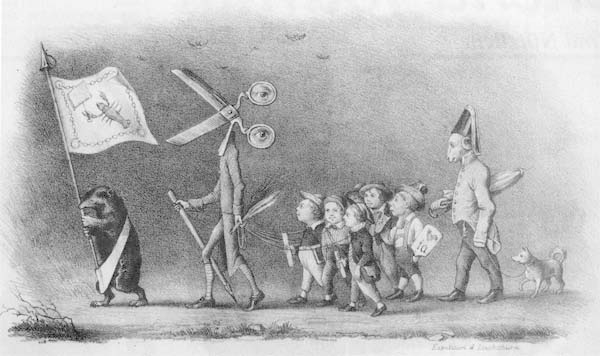Censorship Regimes in Central Europe, 1800-1850: A Reappraisal
Historians have long regarded censorship in nineteenth-century Germany as a critical benchmark for differentiating the political cultures of Western and Central Europe. In his lecture, James Brophy reassesses the impact of censorship on political culture through the perspective of publishers. Although governments repressed authors, printers, and book dealers, publishing houses pushed back. They presided over domestic and international print markets that expanded and strengthened the influence of public opinion. As intellectual midwives who promoted a new style of free-lance, transnational reportage, publishers entangled German letters in broader cultural formations. They asserted their interests through legal and illegal means, and these micro-historical interactions tell us much about the interface of government and society in nineteenth-century Germany. By exploring the entrepreneurial energies of printers and publishers, the talk views this social group far more as agents than as victims in the cat-and-mouse game of winning over the public mind.
James M. Brophy is the Francis H. Squire Professor of History at the University of Delaware. He has written Capitalism, Politics, and Railroads in Prussia, 1830-1870 (1998) and Popular Culture and the Public Sphere in the Rhineland, 1800-1850 (2007) as well as having co-edited Perspectives from the Past: Sources in Western Civilization (5th ed., 2012). In addition, he has published numerous essays on nineteenth-century Germany and Europe. He is currently working on Markets of Knowledge: Publishers and Politics in Central Europe, 1770-1870, a book that examines German publishers as cultural brokers, political actors, and entrepreneurs of print.

